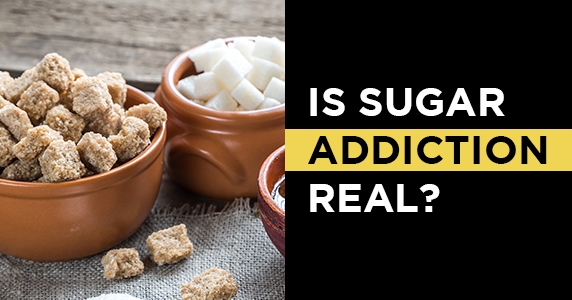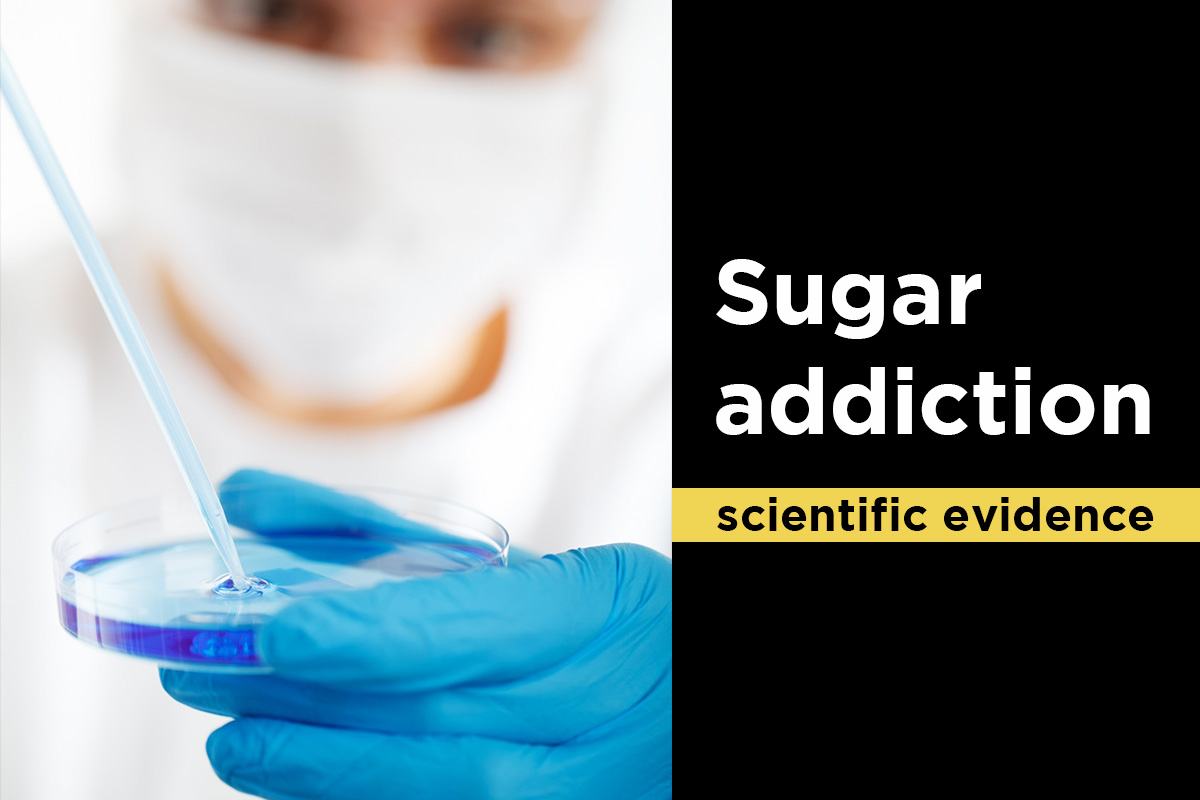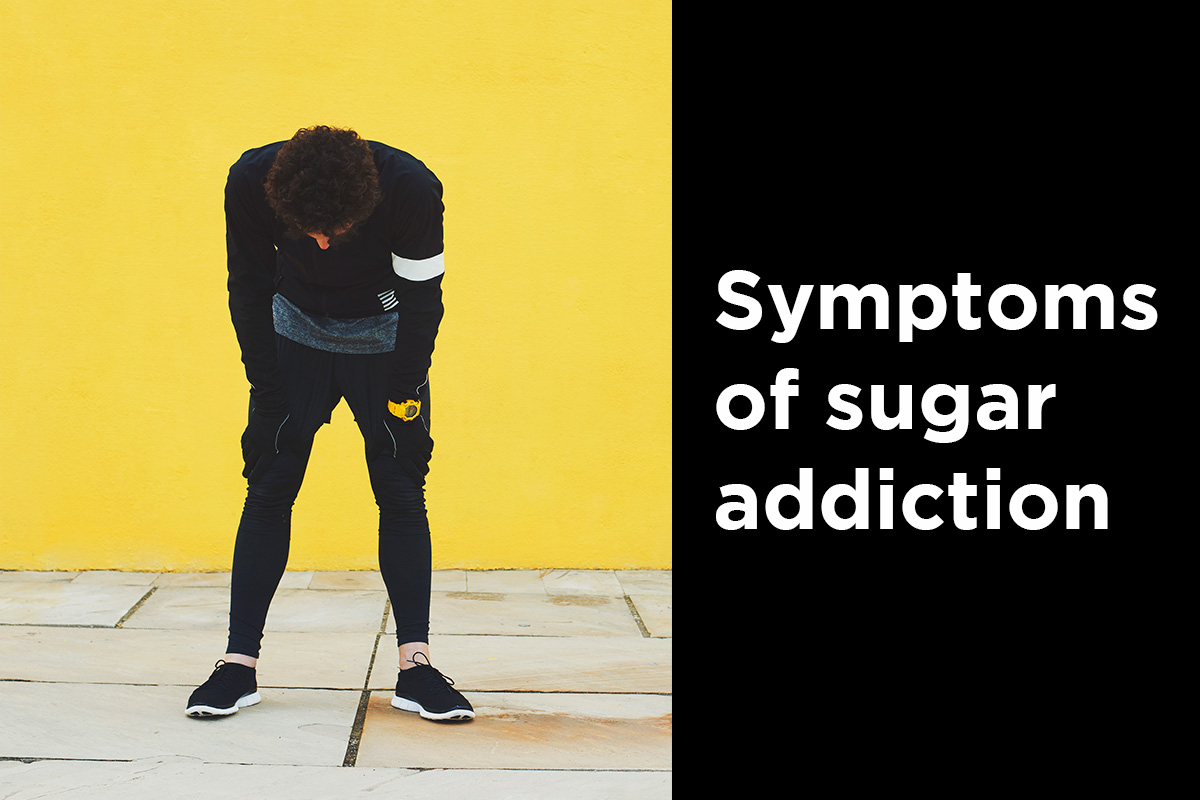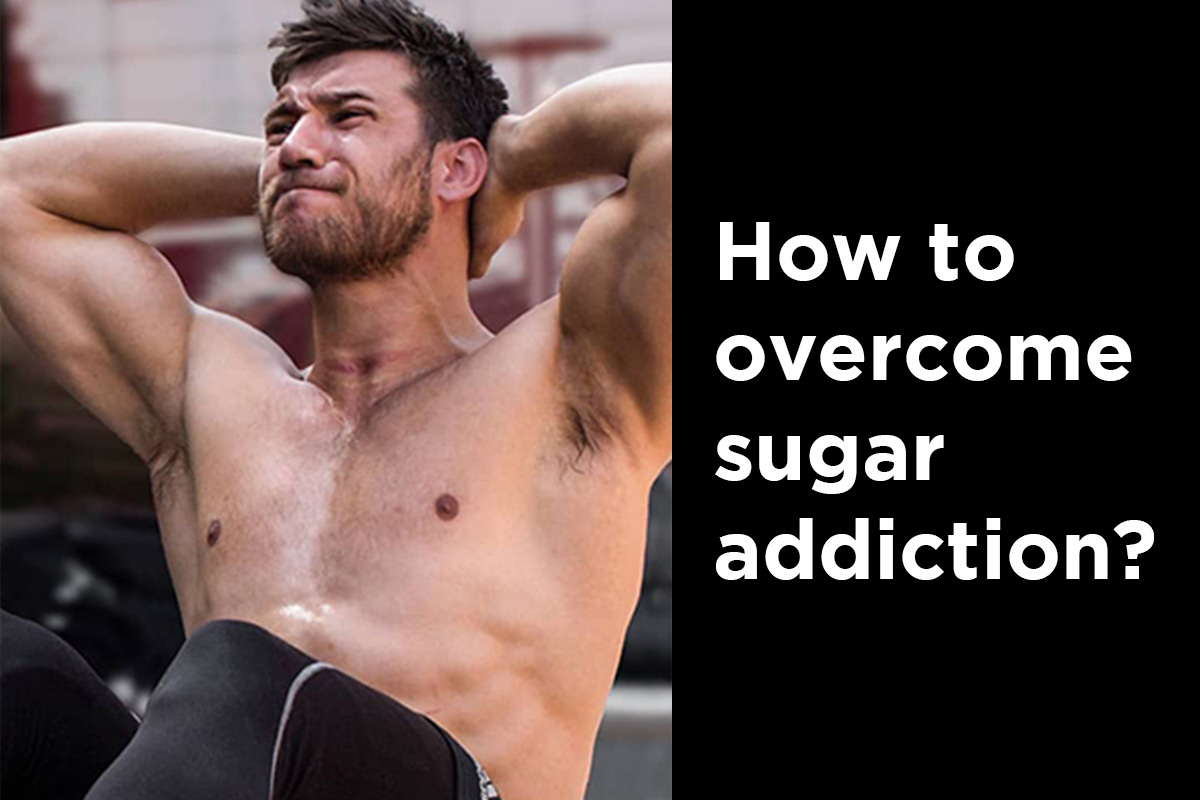Is sugar addiction real?
Find out if you are suffering from sugar addiction, and learn how to fight it!

Although sugar addiction is not yet been officially recognized as real addiction by the scientific community, many research has been made regarding that topic. Although most of the studies are conducted on animals, the epidemic of obesity in Western countries leads us to believe that where there is smoke, there could be fire.
So, is sugar addiction real? In this article, we will review the scientific evidence for sugar addiction, symptoms of sugar addiction, and finally - how to overcome sugar addiction.
Sugar addiction - scientific evidence

Research suggests that sugar addiction is plausible in humans since sugar releases opioids and dopamine. Therefore, it can be expected to have addictive potential. Lates evidence suggests that sugar and sweetness can induce reward and craving in humans that are at least comparable in magnitude to those induced by addictive drugs.
Also, more evidence suggests sugar produces a large number of symptoms that are required for it to be considered an addictive substance. As one article explained, scientific evidence supports the theory that, in some circumstances, intermittent access to sugar can lead to behavior and neurochemical changes that resemble the effects of a substance of abuse.
Simply said, sugar could have an addictive effect. In scientific article Sugar Addiction: From Evolution to Revolution, authors review a large number of researches, concluding there is indeed strong evidence of the existence of sugar addiction. What they conclude is that sugar addiction should be considered more like caffeine or nicotine addiction than like cocaine or heroin addiction.
So, is sugar addiction real?
Well, sugar addiction is not officially recognized as a form of addiction. However, most of the people have experienced some addiction symptoms related to sugar consumption. Informally speaking, we can call this addiction, and the good news is - it is possible to get rid of it.
Keep reading for more information on what are the symptoms of sugar addiction and how to overcome it.
Symptoms of sugar addiction

How can you know you have a sugar addiction? Certain symptoms can be a sign you should consider decreasing your sugar intake. See if you are experiencing any of those:
Bingeing
Sugar binge is a period of excessive indulgence in foods that contain sugar, mostly sweets, and sugary drinks. Binges are something that happens to most of the people every now and then. However, if binges are often (especially if they happen every day), they are a sign of sugar addiction.
Craving
This is the most common symptom of sugar addiction, and some people experience it od a daily basis. Craving is a strong desire for an addictive substance, in this case: sugar.
When your body becomes dependent on sugar, it will crave sugar as soon as it removed from the diet. This doesn’t mean you need to be without sugar for days to experience cravings. In fact, if you are addicted to sugar, cravings can appear as early as 24h after your last sugar intake.
Tolerance
Tolerance can be defined as a gradual decrease in responsiveness to sugar. This means that, as time goes by, you become more and more addicted to sugar, the more sugar you will need to satisfy your craving.
On early stages, one cookie will be enough to satisfy your craving. However, the body will be asking for a higher dose of sugar every nex time you consume it. After a while, you will be eating an entire box of cookies to satisfy your craving, and maybe top it with some ice cream.
Withdrawal
Upon quitting any addictive substance, withdrawal symptoms might appear. For sugar, these symptoms may appear as early as 24h after stopping sugar intake. The phase of withdrawal is often called sugar detox, and it can last from few days to few weeks.
Some of the symptoms of sugar withdrawal are:
Cravings
Lethargy or lack of energy
Anxiety
Headaches and dizziness
Muscle pain
Changes in sleep patterns and insomnia
Chills
Nausea
Gas and bloating
As you can see, sugar addiction can have quite uncomfortable side-effects. Even if you are not experiencing symptoms of addiction on a daily basis, try quitting sugar for a couple of days to see if any withdrawal symptoms will appear. If they do, perhaps you should consider quitting sugar, or drastically decreasing sugar intake.
How to overcome sugar addiction

The question that arises is - why would you want to get rid of sugar addiction? If science does not recognize it as a real addiction, it cannot be that bad, right?
Wrong. Overconsumption of sugar can lead to a great number of medical conditions, some of them being:
Obesity
Increased risk of heart disease
Increased risk for diabetes
Acne
May increase the risk of cancer
So, what happens when you quit eating sugar? Well, good things, such as feeling more energetic, burning more fat and feeling less hungry. But first, once you decide to stop eating sugar, or eat less sugar, you can expect all the withdrawal symptoms to appear. You will be more attracted to sugar than ever, and nothing will seem able to satisfy your cravings.
Luckily, there are certain tips and tricks on how to fight sugar cravings.
Sour food helps reduce sugar cravings: apple cider vinegar or grapefruit can naturally lessen your sugar cravings.
Drink water. Dehydration can cause cravings and sometimes even a slight feeling of hunger. Drinking water, especially after the meal, will help you stay full for a longer period, and can stop cravings.
Avoid excess stress. Some people use sugar and processed food to fight stress. Instead of binging on sweets, try going for a walk in nature or meditate to calm your mind and help stop cravings.
Don’t become too hungry in between meals. Being too hungry can lead you to reach for a chocolate bar to stop hunger, but you will only spike your insulin and be even hungrier afterward.
Keep yourself occupied. When you feel a craving, try finding some activity you enjoy doing and keep your mind of cravings. Read a book or go for a walk instead of eating.
Keep moving. For some people, quick workout could do the trick. It will keep your mind occupied since you will be thinking about your workout, not sugar. Also, it will help you feel instantly healthier and fresher, helping you fight your cravings.
Takeaway
Sugar addiction is, scientifically speaking, not a real addiction. However, multiple studies have proven that sugar can have an addictive effect.
Quitting sugar can have a positive effect on overall health, but can cause withdrawal symptoms, most known being sugar cravings. Luckily, there is a large number of tricks and tips on fighting sugar cravings.
Quitting sugar does not mean quitting deserts. You can find a lot of recipes for healthy snacks, even ice creams, containing no sugar, or just small amounts of sweeteners such as honey.
If you want to find more recipes on healthy snacks, you can find them in Madbarz Premium. In-app Nutrition guide contains 65+ healthy recipes, as well as guidelines on how to build muscle or lose fat.




Post a comment